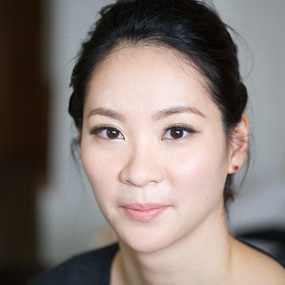Communicating with relatives in a COVID ICU

ST4 Anaesthetist
Experiencing the COVID-19 Frontline
This series started as a collection of anecdotes from anaesthetic healthcare workers. We found it beneficial to take time to reflect on difficult decisions, roles and personal anxieties. That by doing so, opening up and sharing these with each other we could support one another in this unprecedented time. Many of these themes must resonate with others across the country and we hope it provides similar support to you.
Jess Johnston, ST6 Anaesthetist
Communicating with relatives in a COVID ICU
We had been talking about COVID-19 for weeks before I was redeployed to the critical care unit from my ST4 Overnight Intensive Recovery rota. Actually, spending time in a COVID ICU is what I can only describe as a surreal mixture of calm and chaos.
The days and nights are more physically and emotionally draining than any I have ever experienced in my career. The patients are younger, and yet more unwell. The PPE is hot and everyone is drenched in sweat. Doubling up bed spaces means the unit is crammed full of patients and equipment; getting to the head end in an emergency requires Olympic level gymnastics.
It may be challenging for us, but it must be even worse for relatives. Having been a relative to an Intensive Therapy Unit patient before, I can’t imagine not being able to visit or get updates from medical staff in person. The phone rings all day, and we answer it when we get time but often, everyone is busy and tending to someone else. I know the relatives have really appreciated being able to video call and we have been lucky our communications team have taken this of our hands. Giving updates is hard. It’s difficult to sound compassionate when you have to shout through an FFP3 mask. On video call I feel like a pair of eyes and a disembodied voice.
When patients come to the end of their lives, we have managed to allow one relative in for their last moments. This must be horrendous and traumatising for them. I remember seeing a daughter holding her father’s hand during his last moments. The nurses had fashioned a barrier from a hospital sheet to separate him and the next patient who was less than 20cm away. There were alarms going off everywhere and the sound of chest physio and suction. The delirious patient with the trachy had taken his clothes off in the opposite bed.
In the middle of one long day, I remember making two phone calls to two separate groups of relatives - good news for one and bad news for the other. “Deliver the bad news first and get it over with” says one of the other registrars. One of our patients who has been ventilated for three weeks is dying. His daughter clutches at straws and asks “How about a tracheostomy?” and “How about one of those new drugs?” I understand their desperations, but there’s nothing we can do. The second patient has been extubated having improved overnight. We had planned to perform a tracheostomy. I tell his wife that he is doing well. She says she can’t believe that two weeks ago she was told he might not make it through the night and now he is close to being discharged from intensive care. Both sets of relatives cry. After I put down the phone, I feel like I’m going to cry and I don’t know if it’s because I’m happy for one or sad for the other. I can’t think about this for long because my bleep goes off to request - I attend a patient who’s desaturated after a roll.
Despite all the bad news and disappointment for relatives, almost every phone call ends similarly – they ask how I am doing and how we are coping. They say things like “We’ve been thinking of you” or “we clapped for you today”. They are almost always grateful and know how run off our feet we are. None of us do this job for recognition or gratitude, but it feels nice to hear that extra bit of appreciation.
Heung-Yan Wong (Tag)
